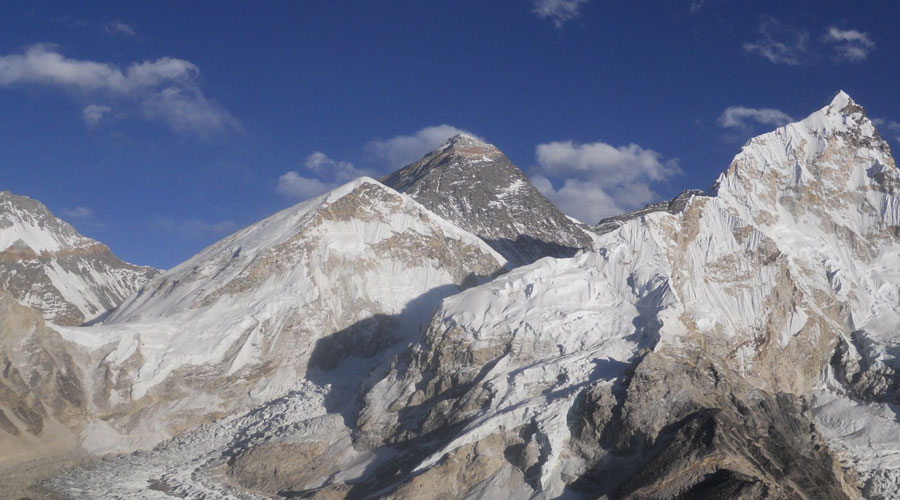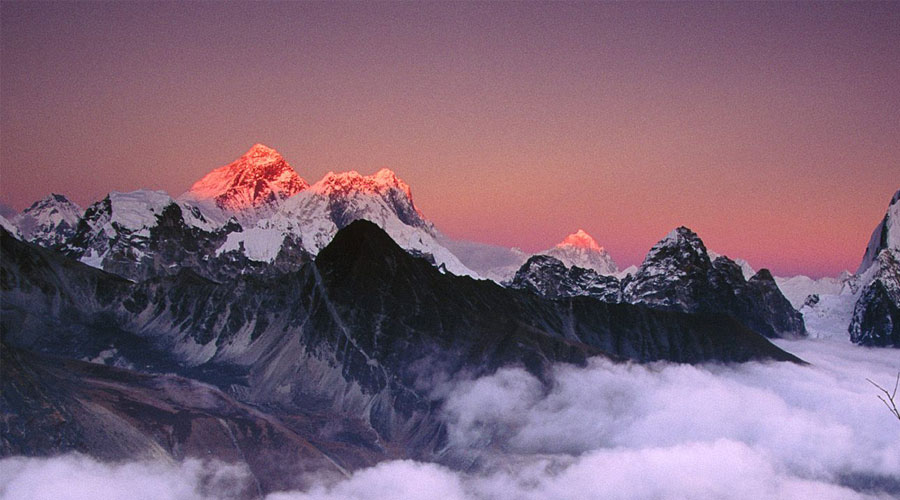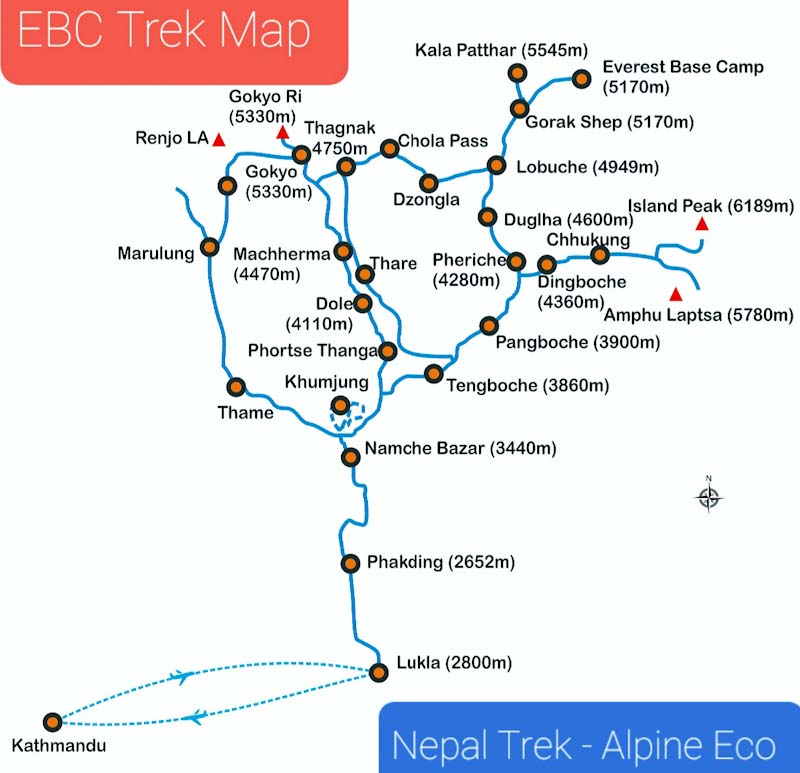Warm welcome upon your arrival at the Kathmandu airport, A scenic 30 minutes flight to Lukla, Explore the beautiful and modern town in the mountains (Namche Bazaar), Visit the Sherpa Museum and discover their amazing culture and traditions, Stunning mountain views Mt. Everest, Lhotse, Nuptse, and Ama Dablam, Hike the Khumbu glacier and witness the Khumbu icefall, Get to the Everest Base Camp and see the panoramic 360-degree view of mountains including the Everest from Kalapathar.
Short Itinerary of 8 Days Everest Base Camp Trek Best Selling Package for 2023 and 2024:
Day 01: Kathmandu to Lukla and Trek to Phakding, Elevation: 2810 m, Lukla, Trekking duration: 3 to 4 hrs.
Day 02: Trek to Namche Bazaar, Elevation: 3450 m, Namche Bazaar, Trekking duration: 6 hrs.
Day 03: Trek to Pangboche, Elevation: 3090 m, Pangboche, Trekking duration: 5 to 6 hrs.
Day 04: Trek to Thukla, Elevation: 4620m, Thukla, Trekking duration: 6 to 7 hrs.
Day 05: Trek to Gorak Shep and Everest Base Camp, Elevation: 5170m- Gorak Shep and 5364m- Everest Base Camp
Trekking duration: 5 to 6 hrs.
Day 06: Trek Back to Pheriche, Elevation: 4250m, Pheriche, Trekking duration: 5-6 hrs.
Day 07: Trek to Namche, Elevation: 3450m, Namche Bazaar, Trekking duration: 6 to 7 hrs.
Day 08: Trek to Lukla, Elevation: 2850m, Lukla, Trekking hours: 6 hrs.



